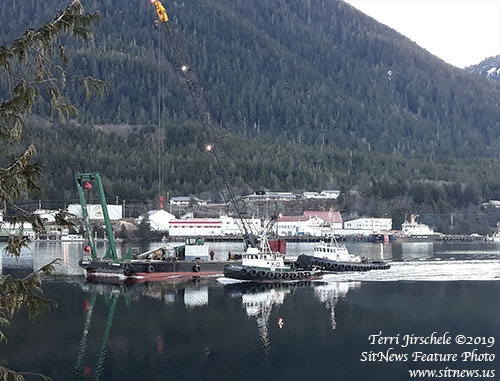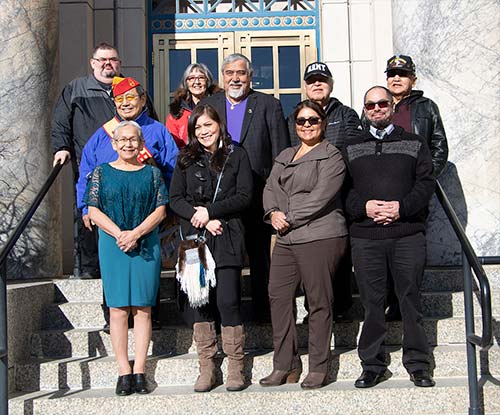






Weekly Specials
Online Shopping; Pickup or Delivery |
|









 Contact Contact 
 Webmail
Letters Webmail
Letters
 News Tips News Tips
 Copyright Info Copyright Info
 Archives Archives
Quick News
Search
 Alaska Alaska
 Ketchikan Ketchikan
 SE Alaska SE Alaska
Columns
- Articles
 Dave Kiffer Dave Kiffer
 Money Matters Money Matters
Historical
Ketchikan
 June Allen June Allen
 Dave
Kiffer Dave
Kiffer
 Louise
B. Harrington Louise
B. Harrington
Sports
 Ketchikan Links Ketchikan Links
Public Records
 FAA Accident Reports FAA Accident Reports
 NTSB
Accident Reports NTSB
Accident Reports
 Court Calendar Court Calendar
 Recent Filings & Case Dispositions Recent Filings & Case Dispositions
 Court Records Search Court Records Search
 Sex Offender Reg. Sex Offender Reg.
 Public Notices Public Notices
 Alaska Recall Alerts Alaska Recall Alerts
 Recalls.gov Recalls.gov
 AST Daily Dispatch AST Daily Dispatch
 KTN
Police Reports KTN
Police Reports
 Juneau Police Reports Juneau Police Reports
Weather,
Webcams
 Today's
Forecast Today's
Forecast
 KTN
Weather Data KTN
Weather Data
 AK
Weather Map AK
Weather Map
 AK Weathercams AK Weathercams
 AK Earthquakes AK Earthquakes

|
|

Thursday
March 07, 2019

Early Morning Tow
The 'Jennie B' and the 'Banner' towing
the 'Quartz Hill' back to Ketchikan recently.
Front Page Feature Photo By TERRI JIRSCHELE ©2019
|
|
Ketchikan: House Transportation Committee Takes AMHS Public Testimony; Rep Dan Ortiz Wants to Hear from District 36 By MARY KAUFFMAN- Representative Dan Ortiz (I-Ketchikan) is strongly encouraging all members of District 36 to take time next week to speak up about the Alaska Marine Ferry System and the proposed budget cuts to the service. Ortiz say this will be the only AMHS public testimony opportunity in the House Transportation Committee.
Public testimony will be heard Tuesday, March 12th, from 1:30pm-3:00pm and from 5:30pm-6:30pm, by Alaska House of Representatives Transportation Committee.
Details first began to emerge on the ferry system’s proposed budget cuts during an Alaska Senate Finance Committee held in Juneau Feburary 20, 2019 and chaired by Sen. Bert Stedman (R-Sitka).
In February Governor Michael Dunleavy proposed a budget cut of approximately $60 million from the Department of Transportation and Public Facilities’ budget from $593 million to $533 million for FY2020.
The AMHS is heavily subsidized by State of Alaska General Funds and according to Office of Management and Budget’s management director for DOTPF Amanda Holland's testimony in February, the percentage of the ferry system’s state costs recovered in fares has fallen from 60 percent in 1992 to 33.3 percent in 2018. The 2018 passenger capacity was 42.6% and vehicle capacity was 51.6%.
Holland also told the committee in February the Alaska Department of Transportation will work with a marine consultant to investigate options available for moving the AMHS towards privatized service or service provided by public/private partnership, with the intent of reducing the State’s financial obligation and/or liability.
However just a few years ago, in January 2016, the Alaska Department of Transportation released a report on the positive economic impacts of the Alaska Marine Highway System and the impacts of reduced services.The report, prepared by the Juneau-based McDowell Group, found that the state-run ferry system generated a return of more than $2 to the state for every $1 invested.
According to the 2016 study, impacts of reduced AMHS service will be broad and far-reaching, affecting a diverse range of Alaska residents, businesses, and organizations. The economies of Alaska’s smaller and more isolated coastal communities, such as Ketchikan, will be particularly hard hit.
Quoting the survey, the impacts of reduced AMHS service include:
• Loss of return on investment: For every dollar of General Fund money not budgeted to AMHS, there will be $2.30 less economic activity in Alaska.
• Loss of AMHS employment and wages: Communities like Ketchikan and Haines, small towns with relatively high AMHS employment (and less diversified economies), will be particularly hard hit by AMHS employment and wage cuts.
• Loss of AMHS spending with local businesses: Cuts to AMHS service will affect a wide range of Alaska businesses that AMHS makes purchases from, such as engineering firms, fuel companies, shipyards, and food suppliers.
• Loss of spending by non-residents: Fewer ferries means fewer out-of-state visitors traveling to Alaska’s coastal communities and spending money there on lodging, retail, transportation, and tours. These outside-sourced dollars are particularly valuable as they generate new jobs and income for Alaska residents, and impact a wide variety of economic sectors.
• Reduced seafood shipment capacity and loss of income to fishermen:Reduced AMHS service will negatively impact seafood processing companies and, in turn, the fishermen from whom they purchase products.
• Increased cost-of-living in coastal communities: Fewer ferries will lead to increased cost of goods, as communities scramble to find other ways of transporting goods in and out – groceries, construction equipment and supplies, household goods, and more will all cost more as transportation costs rise. - More...
Thursday PM - March 07, 2019
|
|
Alaska: Congressman Don Young Becomes the Longest-Serving Republican in the History of Congress - Alaska Congressman Don Young (R-Alaska) achieved a history-making milestone yesterday by becoming the longest serving Republican in the history of the United States Congress. Congressman Young breaks a record previously held by former Speaker of the House Joseph Gurney Cannon.
“It has been the honor of my life to represent our great state in the House of Representatives for forty-six years,” said Congressman Don Young. “I love and respect this institution, and it is a privilege to have worked with over two-thousand other Members throughout my tenure. I would like to thank my friends on both sides of the aisle for taking time to recognize this milestone today. I stand energized and as ready as ever to keep up the fight for all of Alaska.”
Congressman Don Young spoke from the House Floor and reflected upon this historic milestone of service to the people of Alaska.
Young said in his speech, "This a great United States of America. And we're representative of our districts. One thing I learned during my 46 years is that each one of you represent your people. And I respect it. I may not agree with some of the things you stand for, but I respect that you were elected by your people. I had the privilege of traveling a lot, and still do, into members' districts. Not to campaign against them. But to find out why and how they are elected and what they stand for in that community. This democracy, this House is the People's House."
U.S. Senator Lisa Murkowski offered her congratulations to her Alaskan colleague, who reached the milestone of becoming the longest-serving Republican in the history of Congress. Congressman Young has served in the House of Representatives for 46 years. - More...
Thursday PM - March 07, 2019
Alaska: “Prudhoe Bay Governor” Dies at the age of 94, Flags to Fly at Half-Staff Through Sunday - Alaska Governor Michael J. Dunleavy and First Lady Rose Dunleavy wish to express their condolences to the family of former Alaska Governor Keith Miller. Miller, Alaska’s third Governor, passed away last Saturday at the age of 94 in Anchorage.
“While Governor Miller’s time in office was brief, the “Prudhoe Bay Governor” as he became widely known, successfully managed the historic $900 million-dollar Prudhoe Bay lease sale that led to the construction of the Trans-Alaska Oil Pipeline and the modernization of Alaska’s economy,” said Governor Dunleavy. “That’s a remarkable legacy and I ask all Alaskans to remember that significant contribution Governor Miller made to our great state.”
Keith Miller was born in 1925 in Seattle and grew up in Bothell, Washington. As a young man, he always dreamed of living in Alaska and after serving his country in the Army Air Corps during World War II, he took the first opportunity he could to come the Last Frontier. Miller worked on a gold dredge in Fairbanks and tried his hand at farming before finding his true calling in politics. - More...
Thursday PM - March 07, 2019
|

Alaska Legislature Passes Citation Honoring Tlingit Code Talkers
Attendees of yesterday's event:
Front row: Verna Adams, daughter of George Lewis; Krissy Bean, granddaughter of Richard Bean; Jodi Mitchell, step-daughter of Jeff David, and on the end John David, son of Jeff David; back: Tlingit and Haida Central Council President Richard Peterson, Alaska Native Brotherhood Camp 70 President Marcelo Quinto, SHI President Rosita Worl, Tlingit veteran and former state lawmaker Bill Thomas; Southeast Alaska Native Veterans Commander Ozzie Sheakley, and Commander of Hoonah Veterans James Lindoff, Jr.
Photo by Lyndsey Brollini, courtesy of Sealaska Heritage Institute |
Southeast Alaska: Alaska Legislature Passes Citation Honoring Tlingit Code Talkers; Men helped end World War II by using Tlingit as a code - The Alaska State Legislature passed a citation yesterday honoring Alaska's Tlingit code talkers for their exemplary military service and the crucial role they played in helping to end World War II.
The citation, which postumously honored Tlingit code talkers Robert Jeff David, Sr., Richard Bean, Sr., George Lewis, Jr., and brothers Harvey Jacobs and Mark Jacobs, Jr., passed with family members of the men and Native leaders watching from the House and Senate galleries.
Sen. Jesse Kiehl called it ironic that the Tlingit code talkers, who were punished in school as children for speaking their Native tongue, were later called upon to use Tlingit to save American lives.
"When wartime came, when they answered their nation's call, it was in part their languages, their cultures and their connections to one another that was such a strength, that saved so many American service men and women and helped us to be victorious," Kiehl said from the Senate floor.
"Their story is a testament to the ingenuity, nobility and bravery of Alaska Native people and highlights the importance of preserving the Tlingit language," said Senate Majority Leader Mia Costello.
Sen. Gary Stevens on the floor made remarks based on the citation which has not yet been publicly released.
During the war, the Japanese had cracked every code the United States used, but when the Marines turned to Navajo, Tlingit and other Native American recruits to develop and implement a secret military language, they created the only unbroken codes in modern warfare and helped assure victory for the United States over Japan in the South Pacific.
Navajo code talkers have long been recognized for the crucial part they played in World War II. But until very recently, no one knew that Tlingit code talkers also used the Tlingit language as a code that the enemy was never able to crack. Even the families of the Tlingit code talkers did not know of their secret service. - More...
Thursday PM - March 07, 2019
|
|
Alaska: Discovery could mean breakthrough in hard drive storage By FRITZ FREUDENBERGER - A breakthrough by a University of Alaska Fairbanks researcher could lead to computer hard drives capable of storing much more data in a smaller space.
As file size and data needs increase, the future of data storage is uncertain. In the past, the density of data that can be stored on hard drives has increased by 40 percent a year. But in the last five years, that rate, known as data scaling, has slowed to between 15 and 10 percent. Now, thanks to a breakthrough in magnetics, the rate may rise.
Gunther Kletetschka, a research professor at the UAF Geophysical Institute who specializes in magnetics, recently reported a way to control magnetization in nanoparticles that could allow more data in computer hard drives. The results were published with three co-authors in the peer-reviewed journal Nature Scientific Reports.
“What we have shown in this paper is that we have a way that we can erase magnetic memory and a way to stabilize it,” Kletetschka said. “It shows there is a new principle that has not been used. If we use this principle we can have a much larger density of memory storage than we had before.”
Bits of data are stored on a disk in a computer’s hard drive by writing on particles when they are in a fluctuating magnetic state, then stabilizing them to store the written data. To record more data in a given area, you need to allot a smaller space to each bit. In turn, that reduces the signal when you read the data. If you reduce the signal too much, it gets lost in the magnetic noise that arises from the particles coating the disk.
It is possible to reduce that background noise by making the particles smaller. However, it is difficult to shrink them without compromising their ability to maintain a stable magnetic state. The smallest size that’s practical to use for magnetic recording is known as the superparamagnetic limit.
And, unknown to most consumers, disk manufacturers have reached it. - More...
Thursday PM - March 07, 2019
Alaska: Arctic change is impacting lower latitudes By HEATHER REBEKAH - A new, short article written for the public compiles evidence that the footprint of Arctic change is expanding.
“People in other places may not have a full understanding that as the Arctic becomes disrupted the number of social and environmental systems in lower latitudes that are affected is growing,” said co-author Amy Lovecraft from the University of Alaska Fairbanks.
Lovecraft is a professor of political science and director of the Center for Arctic Policy Studies at the International Arctic Research Center. She and 14 others from multiple disciplines wrote the paper. The group focused on sharing a sobering message and calling people to action globally.
The article, published today in the journal Earth’s Future, provides evidence of the effect of Arctic change, including sea level rise, greater storm impacts, and ocean and atmospheric warming.
Under current warming trajectories, sea level is projected to rise 1 meter this century, with the melting of Arctic land ice being a major contributor. New York, Los Angeles and Houston would be just a few of the cities worldwide forced to deal with the impacts.
Changes to the Arctic jet stream may also significantly affect storms and extreme weather events, such as drought and unusual snowstorms already occurring in the continental U.S.
Arctic sea ice loss has serious global consequences, as sea ice helps to regulate Earth’s climate by reflecting incoming solar radiation. As sea ice cover declines, Arctic warming is amplified, further accelerating climate warming well beyond the Arctic.
Permafrost thaw is expected to cost Alaska an estimated $2.1 billion dollars in infrastructure damage and release significant amounts of carbon dioxide and methane into the atmosphere, contributing to further warming of the planet. - More...
Thursday PM - March 07, 2019
|
 |
TOM PURCELL: Why 'Springing Forward' Takes My Dad Weeks - Nobody dreads daylight saving time more than my father.
He has his work cut out for him this coming weekend, when we "spring forward" by setting clocks ahead by an hour before going to bed Saturday night.
You see, my mother loves clocks - so much that he has 14 clocks to reset.
There are clocks in both guest bedrooms. That way, my mother argues, friends and family members who stay over always know the time and can set alarms to wake early.
My father finally figured out how to change the microwave's clock, but the stove is brand-new and its clock is causing him grief.
"For godssakes, Betty," he complains to my mother, "I'll never figure this daggone thing out."
He particularly dislikes the clock in the basement family room. Everyone in our family thinks this framed "picture clock," which displays a mill on a river, is ugly. But my mother loves it because 40 years ago, I used my meager high-school savings to buy it for her as a birthday gift. - More...
Thursday PM - March 07, 2019
 |
JOE GUZZARDI: Play Ball! Baseball Fans Brace for Big Changes - Spring training is underway, and fans whose passion for baseball dates back decades brace themselves for more game-altering, useless and annoying changes. Major League Baseball commissioner Rob "Meddling" Manfred is back at it with more dumb ideas that will, if implemented, distract from the game on the field.
Manfred's latest folly, currently being tested in spring training, is the pitch clock that will limit hurlers to 20 seconds in between pitches. Another experiment that the Atlantic League is testing is a three-batter minimum on relief pitchers. And eventually, the dreaded robot umpire will take its place behind home plate. Count on it!
Fans will remember, with irritation, that Manfred is responsible for the tedious replay review system which slows the game's pace. As fans sit on their hands, bench coaches call their video guys, umpires stare at managers for an order to look at replay, and the umpiring crew deliberates, then consults with the New York-based experts - snail's pace stuff. More Manfred tedium: the automatic intentional base on balls wherein the manager simply flashes four fingers, and the batter trots to first base. The pitcher is relieved of throwing the traditional four wide ones. The estimated game time saved is only a few seconds, but to Manfred every second lost is precious. - More...
Thursday PM - March 07, 2019 |

Political Cartoon: MLB season begins March 20th
It is the 150th anniversary of professional baseball, dating back to the 1869 foundation of the Cincinnati Reds.
By Dave Granlund ©2019, Cagle Cartoons
Distributed to paid subscribers for publication by Cagle Cartoons, Inc. |
|
Alaskans deserve a fair chance to weigh in on Pebble Mine By
Rep. Andrew Josephson
- Twenty members of the Alaska House of Representatives signed a letter to the U.S. Army Corps of Engineers requesting an extension of the deadline for Alaskans to weigh in on the Pebble Project Draft Environmental Impact Statement.
USACE currently plans an inadequate 90-day public comment period. Given the significant impacts the Pebble Project would have on Bristol Bay, Alaskans should have at least 270 days to comment. - More...
Tuesday PM - March 05, 2019
Conserving Electricity By Judith Green - Would it help our present Lack of Precipitation if all neon signs were turned off during daylight hours? - End...
Tuesday PM - March 05, 2019
The real solution to rural Alaska’s challenges? Good jobs and the dignity that comes with them By
First Lady Roxe Dunleavy - In December, my husband chose to hold his inauguration in my home village of Noorvik because it expressed our deep respect and love for the people of rural Alaska. I will forever be grateful to the people of my home village, the people of Kotzebue and the all the people of the Northwest Arctic region for hosting the governor, Lt. Gov. Kevin Meyer, our families and all who attended that amazing, historic event as guests. They received the tremendous hospitality and kindness our people are known for. - More...
Thursday PM - February 28, 2019
Not an Expenditure! By
Ghert Abbott - Like many Ketchikan residents, I appreciate that Representative Ortiz took the time to inform us on February 13th about the Governor’s slash & burn budget. - More...
Thursday PM - February 28, 2019
Dunleavy's Budget By
Robert K. Rice - Like his counterpart in the White House, creating uncertainty, fear, and despair are Dunleavy's greatest skill. Will I have a job? How will we fund our schools? Are we going to have to kick old people out of the Pioneer homes? Will I lose my health care coverage? Will criminals prevail, as we reduce our law enforcement personnel? How will people on islands from Dutch Harbor to Ketchikan travel with our vehicles and motorhomes? etc. etc. etc. - More...
Thursday PM - February 28, 2019
 |
The hard truth about Medicaid expansion By
Bethany Marcum - It’s time for a reality check. Since Alaska expanded Medicaid to able-bodied adults in 2015, our state has experienced cost overruns, unexpected - but predictable - —over-enrollment, and is facing a dependency crisis. Some—local lawmakers and local lobbyists included—would have you believe that Medicaid expansion has benefitted ouf state. But it’s time to face the facts: Medicaid expansion is failing Alaskans. - More...
Monday AM - February 25, 2019
 |
Food for Thought By
Austin Otis - The City of Ketchikan should rework its laws around operating local food trucks. The local government has placed strict regulations that food trucks are not permitted on public property and must be confined to private property (municipal codes: 9.56.040 and 9.56.055). This ordinance has not only stifled growth in entrepreneurship but has confined locals to limited restaurant options. The demand for food choices has exploded under the ever increasing tourist populations and the large influx of seasonal workers. To tame their appetites, an expansion in the local food truck industry could be a solution to a culinary dilemma. Food trucks often reflect a community’s commitment in providing good grub to its inhabitants. We don’t have to look far to find food trucks operating in other Alaskan cities such as Juneau, Anchorage, and Fairbanks. If they can have reasonable sanitation regulations and operating guidelines on food trucks, why can't Ketchikan, with a rising visitor industry of 1.2 million as of 2019? - More...
Monday AM - February 25, 2019
 |
Shareholders' revolt By
Dominic Salvato - The Sealaska Corporation sees the shareholders' revolt as "ungrateful" for the dividends received over the past 47 years. This isn't the case at all. - More...
Monday AM - February 25, 2019
Dunleavy's cuts By
Rep. Dan Ortiz - Last week, Governor Dunleavy unveiled his amended budget proposal for Fiscal Year 2020. As expected, there were substantial cuts to government agencies, all of which will affect Southern Southeast. Some of the cuts that will be most noticeable here in District 36 are the Marine Highway, services to our seniors, education, Fish & Game, public safety, and access to information. - More...
Wednesday PM - February 20, 2019
 |
Proposed budget cuts to education By
Bob Claus - As a long term resident of Prince of Wales island and a former school board member in Craig, I was dismayed and disappointed by the Governor’s proposed budget, especially the proposed cuts to education funding. - More...
Wednesday PM - February 20, 2019
THE GREAT ALASKA DEPRESSION COMETH, YOU VOTED FOR IT By
David G Hanger - The main problem with a parrot is it does not understand that it is repeating words, let alone comprehending what they might mean. So whether you are a liar, a crook, or a murderer does not really matter, the parrot prattles your drivel not realizing even that it is a parrot. There is considerable parallel with the human parrot who prattles his or her drivel with the intent in mind of deceiving you. - More...
Wednesday PM - February 20, 2019
 |
State Budget By
Chris J. Herby
- I, just like everyone else in our area, was quite set back and rather mad when I read the details of our new governor's proposed budget. Then I realized that this can't really be a serious budget proposal and instead is merely his way of getting our attention and telling us that we do in fact have a serious financial problem facing our state. I think most of us have been aware of that for quite some time now. - More...
Wednesday PM - February 20, 2019
 |
Gov. Dunleavy's proposed budget, a picture of doom & gloom. By
Carol Dooley - Gov. Dunleavy's proposed budget is a picture of doom & gloom. His proposed budget outlines the demise of the Alaska Marine Highway system, which would be followed by the demise of the Ketchikan shipyard. He proposes to rob our senior citizens of services, to rob the poor of medical coverage, to rob our children of a decent education and ruin our State University, and to add insult to injury he proposes to take all of the commercial fish tax money and slash the Department of Fish & Game budget. All for the sake of a full payout of the permanent fund dividend. - More...
Wednesday PM - February 20, 2019
Dunleavy, You Need To Try Harder By
Charles Edwardson - Cutting education in any way shape or form in my opinion should be a last resort not your first option as a governor! I see one term wonder as the first sentence on your next resume. - More...
Wednesday AM - February 20, 2019
Gabrielle LeDoux: The untold story By
John Nelson - Gabrielle LeDoux: The untold story and how Governor Dunleavy can defeat this impasse while also obtaining a majority in the House at the same time... - More...
Wednesday AM - February 20, 2019
RE: Anti-vaxxers are a threat to all of us By
Amanda Mitchell - If you are up-to-date on your immunizations, what ‘vaccine-preventable’ disease would you need to fear acquiring from an ‘anti-vaxxer?’ Rich Manieri says that if you don’t vaccinate you risk infecting other people and if you vaccinate you won’t contract the disease vaccinated for. (Manieri 2019) So the very reason Rich Manieri suggests that all vaccine exemptions should be removed is the exact same reason no one should feel threatened by the unvaccinated. Most importantly, you have to have the disease to spread it in the first place and to assume all unvaccinated people carry a disease is highly discriminatory and dangerous. - More...
Wednesday AM - February 20, 2019
 |
Israel: A Strategic Ally By
Donald Moskowitz - People who claim to be anti-Israel and who support boycotting Israeli products, divestments from Israeli companies, and sanctions are actually Jew Haters who cloak their true hatred in anti-Israel rhetoric. - More...
Wednesday AM - February 20, 2019
 Webmail your letter or Webmail your letter or
 Email Your Letter To: editor@sitnews.us Email Your Letter To: editor@sitnews.us
|
Articles &
photographs that appear in SitNews may be protected by copyright
and may not be reprinted or redistributed without written permission
from and payment of required fees to the proper sources.
E-mail your news &
photos to editor@sitnews.us
Photographers choosing to submit photographs for publication to SitNews are in doing so, granting their permission for publication and for archiving. SitNews does not sell photographs. All requests for purchasing a photograph will be emailed to the photographer.
|
|




















The Local Paper is
available online.
Click here for this week's printed edition (PDF)



|
|


![]() Contact
Contact ![]()
![]() Webmail
Letters
Webmail
Letters![]()
![]() News Tips
News Tips![]()
![]() Copyright Info
Copyright Info![]() Archives
Archives![]() Alaska
Alaska![]() Ketchikan
Ketchikan![]() SE Alaska
SE Alaska![]() Dave Kiffer
Dave Kiffer![]() Money Matters
Money Matters ![]() June Allen
June Allen![]() Dave
Kiffer
Dave
Kiffer![]() Louise
B. Harrington
Louise
B. Harrington ![]() Ketchikan Links
Ketchikan Links![]() FAA Accident Reports
FAA Accident Reports ![]() NTSB
Accident Reports
NTSB
Accident Reports![]() Court Calendar
Court Calendar![]() Recent Filings & Case Dispositions
Recent Filings & Case Dispositions ![]() Court Records Search
Court Records Search![]() Sex Offender Reg.
Sex Offender Reg.![]() Public Notices
Public Notices![]() Alaska Recall Alerts
Alaska Recall Alerts![]() Recalls.gov
Recalls.gov![]() AST Daily Dispatch
AST Daily Dispatch![]() KTN
Police Reports
KTN
Police Reports![]() Juneau Police Reports
Juneau Police Reports ![]() Today's
Forecast
Today's
Forecast![]() KTN
Weather Data
KTN
Weather Data![]() AK
Weather Map
AK
Weather Map![]() AK Weathercams
AK Weathercams![]() AK Earthquakes
AK Earthquakes










































